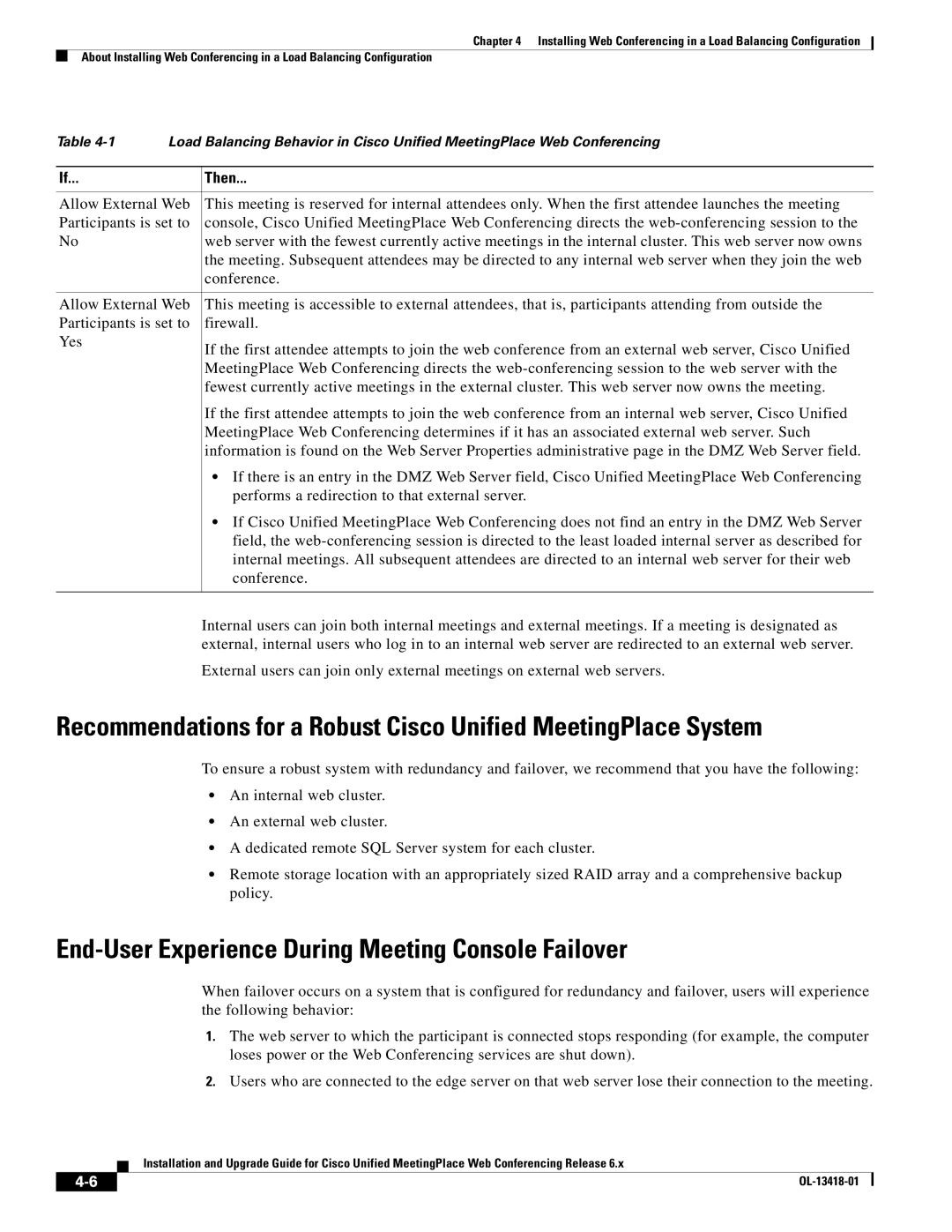
Chapter 4 Installing Web Conferencing in a Load Balancing Configuration
About Installing Web Conferencing in a Load Balancing Configuration
Table | Load Balancing Behavior in Cisco Unified MeetingPlace Web Conferencing | |
|
|
|
If... |
| Then... |
|
| |
Allow External Web | This meeting is reserved for internal attendees only. When the first attendee launches the meeting | |
Participants is set to | console, Cisco Unified MeetingPlace Web Conferencing directs the | |
No |
| web server with the fewest currently active meetings in the internal cluster. This web server now owns |
|
| the meeting. Subsequent attendees may be directed to any internal web server when they join the web |
|
| conference. |
|
| |
Allow External Web | This meeting is accessible to external attendees, that is, participants attending from outside the | |
Participants is set to | firewall. | |
Yes |
| If the first attendee attempts to join the web conference from an external web server, Cisco Unified |
|
| |
|
| MeetingPlace Web Conferencing directs the |
|
| fewest currently active meetings in the external cluster. This web server now owns the meeting. |
|
| If the first attendee attempts to join the web conference from an internal web server, Cisco Unified |
|
| MeetingPlace Web Conferencing determines if it has an associated external web server. Such |
|
| information is found on the Web Server Properties administrative page in the DMZ Web Server field. |
•If there is an entry in the DMZ Web Server field, Cisco Unified MeetingPlace Web Conferencing performs a redirection to that external server.
•If Cisco Unified MeetingPlace Web Conferencing does not find an entry in the DMZ Web Server field, the
Internal users can join both internal meetings and external meetings. If a meeting is designated as external, internal users who log in to an internal web server are redirected to an external web server.
External users can join only external meetings on external web servers.
Recommendations for a Robust Cisco Unified MeetingPlace System
To ensure a robust system with redundancy and failover, we recommend that you have the following:
•An internal web cluster.
•An external web cluster.
•A dedicated remote SQL Server system for each cluster.
•Remote storage location with an appropriately sized RAID array and a comprehensive backup policy.
End-User Experience During Meeting Console Failover
When failover occurs on a system that is configured for redundancy and failover, users will experience the following behavior:
1.The web server to which the participant is connected stops responding (for example, the computer loses power or the Web Conferencing services are shut down).
2.Users who are connected to the edge server on that web server lose their connection to the meeting.
Installation and Upgrade Guide for Cisco Unified MeetingPlace Web Conferencing Release 6.x
|
| |
|
